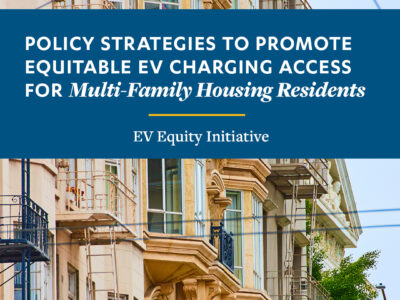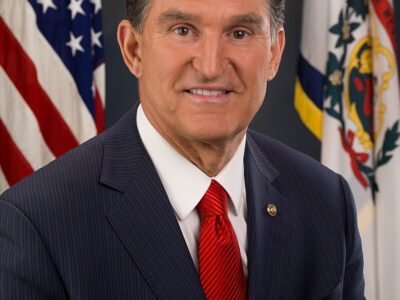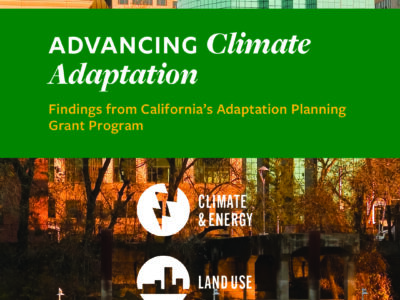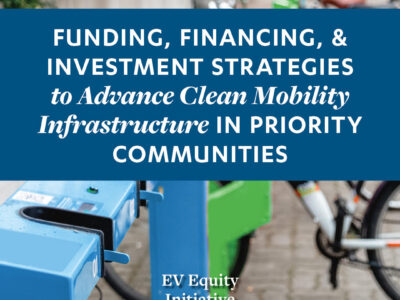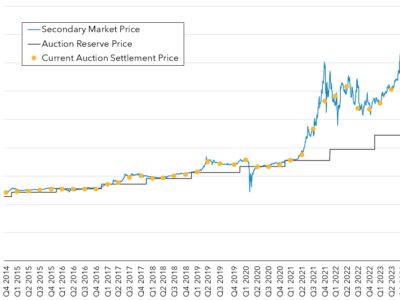Environmental Justice
EV Charging Access for Multifamily Housing Residents
New CLEE report highlights key findings for equity-oriented program design
The rapidly approaching electric vehicle (EV) transition that California and a dozen other states have committed to enact over the coming decade mounts pressure on state and local governments to deliver millions of new EV chargers across various location types. Homes constitute the core of a convenient and reliable charging network, and EV charging infrastructure …
Continue reading “EV Charging Access for Multifamily Housing Residents”
CONTINUE READINGDid Democrats Follow Through?
The 2020 Democratic Platform made some big promises. Four years later, where do things stand?
Many of the climate promises in the 2020 Democratic platform were kept, and large down-payments were made toward fulfilling others. The glass is definitely more than half full.
CONTINUE READINGJustin Pidot: Manchin’s Latest and Last Run at Promoting Fossil Fuels through a Permitting Reform Bill
His proposal is a bad deal on climate and an afront to environmental justice
Last week, Senator Manchin unveiled his latest permitting bill, negotiated with Senator Barrasso and set to be marked up by the Senate Committee on Energy and Natural Resources on Wednesday. After recently completing a 3 ½ year stint as general counsel at the White House Counsel of Environmental Quality, I recognize that continuing to improve …
CONTINUE READINGCounting the Climate Costs of Warfare
There are calls for nations to disclose their military-related greenhouse gas emissions as researchers try to tally the climate impacts of war in Ukraine and Gaza.
What if I told you that nations around the world were ignoring a significant amount of their greenhouse gas emissions by omitting an entire dirty sector from their tally? Would you be horrified? Would you want to close that loophole so that parties to international agreements are required to report these hidden emissions as part …
Continue reading “Counting the Climate Costs of Warfare”
CONTINUE READINGHow are California’s New Climate Adaptation and Resilience Grant Programs Performing?
CLEE reports analyze state’s highly in-demand adaptation and resilience grants for crucial local climate action
California is rapidly experiencing the impacts of a changing climate, from devastating wildfires and persistent droughts to rising sea levels, extreme heat, and erratic precipitation patterns. Climate adaptation is crucial for building resilience to these and other risks, thereby protecting California’s communities, economy, environment, and public health. However, effective adaptation requires significant investment, particularly in …
CONTINUE READINGFinancing and Investment Strategies for an Equitable Clean Mobility Transition
New CLEE / Prospect Silicon Valley report outlines top strategies from a series of expert convenings
The transition to 100 percent zero-emission vehicle (ZEV) sales by 2035 will require massive investment in electric vehicle charging infrastructure throughout California and in other states that have adopted the same phaseout targets. A variety of structural barriers to charging access make California’s priority populations particularly reliant on public charging infrastructure to meet their ZEV …
Continue reading “Financing and Investment Strategies for an Equitable Clean Mobility Transition”
CONTINUE READINGCalifornia Seeks to Protect Homes from Excessive Indoor Heat
Guest contributor Cassandra Vo writes that the state should do more to protect mobile homes dwellers from heat. Work by a UCLA Law Clinic on behalf of Leadership Counsel for Justice and Accountability points the way forward on inclusive heat resiliency standards.
Guest contributor Cassandra Vo is a J.D. Candidate at UCLA Law (’25) specializing in environmental law. Hotter, deadlier, and more frequent heat waves have become one of the most surefire signs of a changing climate in our day-to-day lives. California recognized the need for action on this issue in 2022 by bringing to life AB …
Continue reading “California Seeks to Protect Homes from Excessive Indoor Heat”
CONTINUE READINGHow the ICC is Using International Criminal Law to Prosecute Suspects of Eco Crimes
Guest contributor Aria Burdon Dasbach writes that the International Criminal Court is in the process of weighing dozens of suggestions for how to go after global environmental crimes.
There are many different ways that our global society has attempted to address environmental damage and climate change. We fund climate technology startups. We elect representatives that keep the climate in mind. We start nonprofits dedicated to reestablishing our collective sustainable relationships with earth systems. And we litigate in civil and federal courts at the …
CONTINUE READINGFive Myths and Half-Truths About California Cap and Trade
California has spent years fine-tuning its trading system, with results that aren’t always easy to gauge.
A key part of California’s climate policy has always been its cap and trade system. Because the regulations aren’t very transparent, there have been a lot of misconceptions about the system. I’ve been digging into the rules, the explanatory website set up by the California Air Resources Board (CARB), and secondary sources to try to …
Continue reading “Five Myths and Half-Truths About California Cap and Trade”
CONTINUE READINGNot All Community Benefits Are Created Equal
Technical Assistance for Underserved, Environmental Justice, and Tribal Communities Will Be Key to Ensuring Meaningful California Offshore Wind CBAs
CLEE has just released a new report, Offshore Wind & Community Benefits Agreements in California: CBA Examples, detailing the CBA and other community provisions in California’s offshore wind leases, as well as examples of CBA precursors and models from other industries. Read it here. As California offshore wind moves forward, there are opportunities for underserved, …
Continue reading “Not All Community Benefits Are Created Equal”
CONTINUE READING



